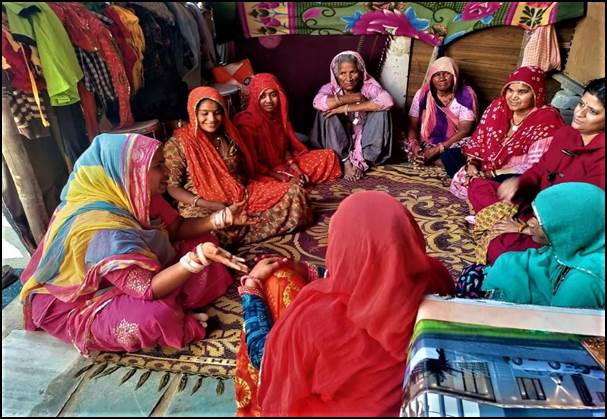In the bustling Babaramdev Nagar settlement of Jaipur, a group of women leaders have turned the tide on sanitation, proving that true change begins at the grassroots. For years, the settlement, home to hundreds of families, had struggled with inadequate sanitation services. With no access to sewer connections and poorly managed community toilets, women in particular bore the brunt of these challenges. That all began to change when women like Manju Rana, Sanju Rana, Chuttan Begum, and others took it upon themselves to lead a sanitation revolution.
These women, hailing from diverse backgrounds such as fisherwomen, waste pickers, and homemakers, formed the Community Management Committee (CMC) and the Single Window Forum (SWF). They were determined to give a voice to the marginalized in their community. Their first step was to receive formal training on sanitation operations and the Swachh Bharat Mission (SBM) guidelines. Equipped with this knowledge, they devised a plan that involved engaging the community, gathering evidence, and co-creating a sustainable sanitation model.

Each woman leader focused on specific groups within the settlement, reaching out to the elderly, single women, the differently-abled, and waste pickers. Together, they mobilized over 400 residents to participate in awareness campaigns on safe sanitation practices and waste segregation. The results were immediate. Of the 100 households without toilets, 25 saw new toilets constructed, while the remaining 75 were in the process of building theirs. The women also took charge of maintaining existing community toilets, fostering a sense of collective responsibility and ownership.
Recognizing the importance of women’s voices in addressing these sanitation challenges, the women leaders approached the Slum Development Committee (SDC), which had predominantly male leadership. They stressed the need for strong female representation to ensure the specific concerns of women and vulnerable groups were addressed. Their efforts not only improved sanitation infrastructure but also contributed to a more inclusive and sustainable solution, catalysing behavioural change among the settlement’s residents.
These women leaders are part of a larger national movement toward better sanitation, exemplified by the Swabhav Swachhata Sanskaar Swachhata (4S) campaign, launched to mark the 10th anniversary of the Swachh Bharat Mission. Running from September 17 to October 2, 2024, this campaign aligns with the annual Swachhata Hi Seva initiative, which culminates in Swachh Bharat Diwas on October 2, Mahatma Gandhi’s birth anniversary. The 4S campaign goes beyond a cleanliness drive; it embodies the core values of ownership, sustainability, and dignity through sanitation, principles that resonate with the work done by the women of Babaramdev Nagar.

The success of the Swachh Bharat Mission over the last decade speaks for itself. As of September 25, 2024, a staggering 11.66 crore household toilets have been built in rural India, transforming the hygiene landscape in countless villages. In urban areas, 63.63 lakh Individual Household Latrines (IHHL) have been constructed, improving access to sanitation for millions. These numbers show the scale of the mission, but it is the personal stories, like that of the women of Babaramdev Nagar, that reveal the heart of the movement.
Their efforts have shown that sustainable sanitation cannot be achieved without community involvement, particularly from women. By taking charge, these women have reshaped not only the sanitation systems of their settlement but also the way their community perceives women’s leadership. Their work continues to inspire others in similar communities, proving that change is possible when local residents take the lead.
As the Swachh Bharat Mission celebrates its 10th anniversary, the story of Babaramdev Nagar stands as a testament to the power of grassroots activism. The women of this settlement have shown that achieving a cleaner, healthier India requires not only infrastructure but also the commitment and involvement of the people it serves. Their journey is one of courage, resilience, and a vision for a brighter future, inspiring countless others to take action in their own communities.
 Matribhumi Samachar English
Matribhumi Samachar English


